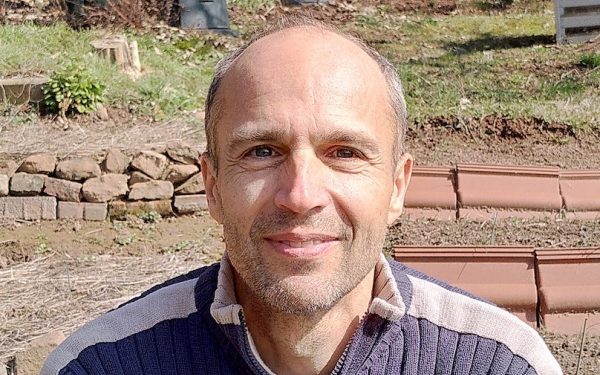The first complete global database puts food systems’ greenhouse gas emissions slightly higher than previous estimates – while confirming the figure is around one third.
Its launch is expected to support the case that COP26 in the UK this year should address the role of food systems in climate change as a priority. Currently this is not the case.
Adrian Leip, a lead researcher along with Monica Crippa, says, “Fighting climate change can only succeed if addressing both food and energy. Food’s role is crucial in air and water pollution.
“Our results corroborate previous findings that food systems contribute a significant share of emissions, although our range is slightly higher than the one estimated by the Intergovernmental Panel on Climate Change (IPCC).
“The new research estimates that food systems contribute between 25 and 42 per cent of the world’s greenhouse gases, while the IPCC put it at between 21 and 37 per cent, in 2019’s Special report on Climate Change and Land based on less complete data.”
The EDGAR-FOOD database covers the years 1990–2015, showing the global food system is becoming more energy intensive. Developed by the EU’s Joint Research Centre, it shows the food system is responsible for 30 per cent of EU greenhouse gas emissions.
Adrian Leip, says, “Food systems are in need of transformation – this has been made clear. Our hope is that EDGAR-FOOD will help identify where actions to reduce food system greenhouse gas emissions will be most effective.
“Solutions must reduce emissions in the supply chain, but also help consumers to access more healthy and sustainable diets”
“Transparent, robust data is needed to understand the complexity of food systems.
“Our data shows increasing emissions from energy use, mainly post-farm gate, so to reduce emissions the food system will need to invest in energy efficiency and decarbonisation technologies.
“EU citizens expect sustainable food with low greenhouse gas footprints. Solutions must reduce emissions in the supply chain, but also help consumers to access more healthy and sustainable diets. The Farm to Fork action plan for organic farming, for example, will boost both supply and demand.”
The researchers found almost one third of food system emissions are from energy-consumption, and energy use by farms is increasing.
The food system produces two tons of carbon dioxide equivalent emissions per person every year. About half the system’s greenhouse gas emissions are carbon dioxide, mainly from land use change and energy.
One third of the food system’s greenhouse gases are methane, because of livestock, rice production and waste management. Most of the rest is emitted as nitrous oxide from nitrogen fertilisers. Man-made fluorinated gases, used in refrigeration, play a minor role but are increasing.
Emissions from the retail sector are three times higher than in 1990. The cold chain which reduces food spoilage through industrial and domestic refrigeration currently accounts for five per cent of global food systems emissions, but this is expected to increase in developing countries.
Almost one third of food-system emissions are from land use and land-use changes through the carbon loss of deforestation and the degradation of organic soils, including peatlands.
Almost one third of food-system emissions are from the carbon loss of deforestation and the degradation of soils
In 2015, the six top emitting economies in the food system were China with 13.5 per cent of the global total, Indonesia with 8.8 per cent, the United States with 8.2 per cent, Brazil with 7.4 per cent, the European Union with 6.7 per cent and India with 6.3 per cent.
“Maybe one surprise was how well our data confirms previous estimates,” said Adrian Leip. “This in fact confirms the great work that previous researchers have done.
“I was a bit surprised by the contribution of navigation, road, rail, and air transport to transport emissions. That’s why we have added a specific section on this. Our data shows that local to regional transport is much more important. We were happy to see that aviation causes a very small share of emissions. This does not mean it is okay to buy food transported by plane – the emissions per kilometre are one order of magnitude higher than for navigation. It means that fortunately a very small share of food uses this medium.
“EDGAR-FOOD is mainly a tool to describe past emissions, which is important to monitor the effect of existing policies. But before deciding on policies, full impact assessments are needed on the intended and unintended consequences.
“If we aim to reduce the production of meat, we need to avoid an increase in meat imports, this what we call ’emission leakage’. If we work with financial incentives, what does it mean for the agency of the citizen?”
The EDGAR-FOOD database is so complete that it will become a vital asset in policy decision-making, such as the new European Commission’s Farm to Fork Strategy.
It covers the Intergovernmental Panel on Climate Change sectors of energy, industry, agriculture and waste. And it is complemented by the Food and Agriculture Organization’s FAOSTAT database on emissions from land use and land use change.
As a result, it covers all sectors and geographical areas, applying a transparent process of data integration and verification.
The database covers the food system’s six life-cycle stages:
- Land use, land-use change
- Primary production of food commodities
- Food processing
- Food distribution including packaging, transport and retail
- Food consumption including domestic activities of food preparation
- End of life, including food residues management and management of non-food residues used in previous food-system stages.
Further reading:
- Home cooking identified as major factor in greenhouse gas emissions
- Farm technology could cut 70 per cent of crop emissions
- Food systems offer huge opportunities to cut emissions























